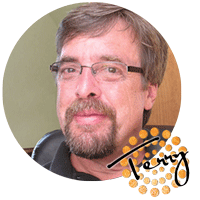Humanity is navigating an era of uncertainty, distrust, and dissension. We've seen so much tragedy and it's left us with a deep felt need for reconnection. The CitySalt blog team will take the next few months to examine where and how we might find opportunities to unite and commune, and in that, how we can heal.
Above all, love each other deeply, because love covers over a multitude of sins.
1 Peter 4:8
Jesus commanded us to love one another. A perfect idea if there ever was one. But what about the HOW, in today's fractured world?
The concept of duality was quite vague as I started writing this. But as I investigated it more, something fascinating began to emerge (more on that later).
I just have to share.
I learned that duality is where two opposing parts are by nature, in conflict with each other. They represent two sides of a coin - often occupying unhealthy extremes. But duality also dictates that the two sides share many commonalities (common ground) as well. And because both sides represent a rich, full spectrum of ideas, experience and even motives, both sides end up needing each other - to even exist!
When it’s functioning well with honest debate and mutual respect, our political system is the perfect example of duality. I’ve joked that it’s why God invented both men and women (and democrats and republicans)!
But the hard part is working out disagreements.
If the process fails, then constructive work stalls. But when people identify each other's extremes and adopt a mindset of coexisting and duality, real change can happen. They have to "understand themselves and the complexities of life", as many have pointed out. Each has to know and appreciate the other's back stories that led them to their point-of-views.
Goodbye cynicism, enter empathy.
I've long believed that because of our tendency towards emotional biases, triggered from past experiences, with most issues the best solutions (and the best workable truth) frequently lies somewhere between the extremes. None of us has enough in the tank to see it all and know it all.
An emerging, and important distinction:
Disagreement is emotionally taxing, but maybe we have a simplistic idea that in order to love, we have to always agree. Or be best friends. But actually I don't think we do. In my profession some of my best workmates have been people very different from me. But we learned to appreciate the passion and skills we both brought to the table. There was mutual respect.
The tension we instinctively feel with hard relationships certainly happens because of our differences. But we need to realize that deep down, we all need and want the same basic things. And it all starts with personal and mutual acceptance, which provides emotional safety. When we can move in parallel towards a shared solution, we actually grow closer. Could real, authentic love happen in this space? Sure, why not?
A final thought: In our current Christian/political climate, duality thinking might be construed by some as "watering down the truth" and "fraternizing with the enemy". First, I would never, ever want to accept a dangerous essential lie. God calls us to earnestly search for him and ultimate truth.
Secondly, I absolutely believe it's our Jesus-appointed task to sup with the sinners (because honestly, we're sinners too). Truth is, none of us believers can really influence anyone for good without first gaining a relationship with them.
Micah 6:8 | MSG
“But he’s already made it plain how to live, what to do, what God is looking for in men and women. It’s quite simple: Do what is fair and just to your neighbor, be compassionate and loyal in your love. And don’t take yourself too seriously—take God seriously.”
Luke 6:38 | MSG
“Give away your life; you’ll find life given back, but not merely given back—given back with bonus and blessing. Giving, not getting, is the way. Generosity begets generosity.”
About the Author
Terry is a man in constant motion to explore new horizons. He has a thirst for new places and faces, and a deep love for the natural world - with a weakness for waterfalls and sunsets. All of this venturing out helps to both ground and inspire him, because it opens him up to people, with their vast, collective array of experiences, outlooks and responses.
He finds all of this fascinating and sees that it has encouraged the growth of something crucial in his Christian development: empathy and compassion toward his brothers and sisters on this planet.


